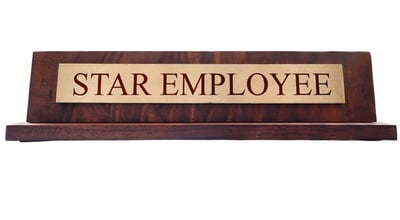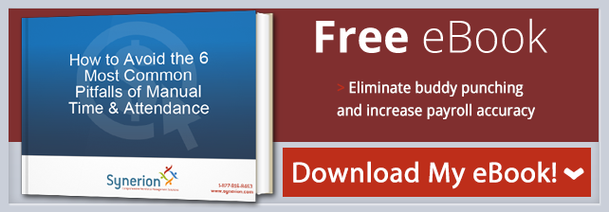 If you want to create a cohesive team, a productive work environment and cultivate brand ambassadors, you need your employees to work at their highest level and the best way to achieve that is to use your employees' talents. Whether it is a propensity for paperwork or a great desire to speak to others, configuring your employees' jobs to join with their talents ensures business success. But how do you discover and cultivate those talents? Use these steps to gain the most from your employees' talents:
If you want to create a cohesive team, a productive work environment and cultivate brand ambassadors, you need your employees to work at their highest level and the best way to achieve that is to use your employees' talents. Whether it is a propensity for paperwork or a great desire to speak to others, configuring your employees' jobs to join with their talents ensures business success. But how do you discover and cultivate those talents? Use these steps to gain the most from your employees' talents:
Go on a Fact-Finding Mission
Some employees are already working with their greatest talents. Whether they love sales or are great at implementing lean principles, you can probably name a handful of employees who love their job and love their daily tasks. Engaging the rest of your employees will take some effort though.
Start with a fact-finding mission to discover what each employee's daily tasks consist of and which of those tasks they enjoy most. Don't rely on job descriptions or a one-on-one meeting. Shadow employees during their daily tasks to get a good understanding of how they are spending their day. Then look at performance parameters to determine where each employee shines. A fact-finding mission will give you the information needed to make more of your employees' talents.
Talk To Employees
Once you've gathered the data needed to maximize your employees' talents, you should schedule an individual meeting with each employee. This meeting should be an informal conversation that aligns what the employee does each day, what they enjoy doing, and where their performance excels. By weighing in employee input with performance reviews, you can create a better roadmap to enhancing employee talents to benefit both the business and the employee.
Be Positive
When it comes to making the most out of your employees' talents, you need to stay positive. Whether it is your first meeting to discuss potential job duties or a follow up annual meeting, focusing on what employees excel at instead of where they falter is important to encourage engagement and productivity. If disciplinary action is needed for poor work performance, keep that conversation separate. Positivity not only affects worker satisfaction but it can keep the entire team on track to achieving their goals and increasing employee engagement.
Commit It to Paper
As you cultivate and expand on each employee's talents, you'll find that jobs start to evolve. A salesperson may start working solely with established customers while another employee takes over chasing leads. It's important as a manager to finalize those job duties in their job description. Take time each year to look over job descriptions and determine whether the natural evolution of the position has shifted away or towards job duties. Update the job description as needed and discuss that change with employees. This give employees more stability and rewards them for doing what they do best.
A good manager understands that the best work is drawn from engaged and satisfied employees. Beginning the process by observing and recording employee work habits, then sitting down with employees to discuss their perceived talents and interests and finally adding those new duties into their job description can ensure you gain the most productivity and satisfaction from your employees' talents. Engage your employees by developing their talents to make your business and your employees excel.
